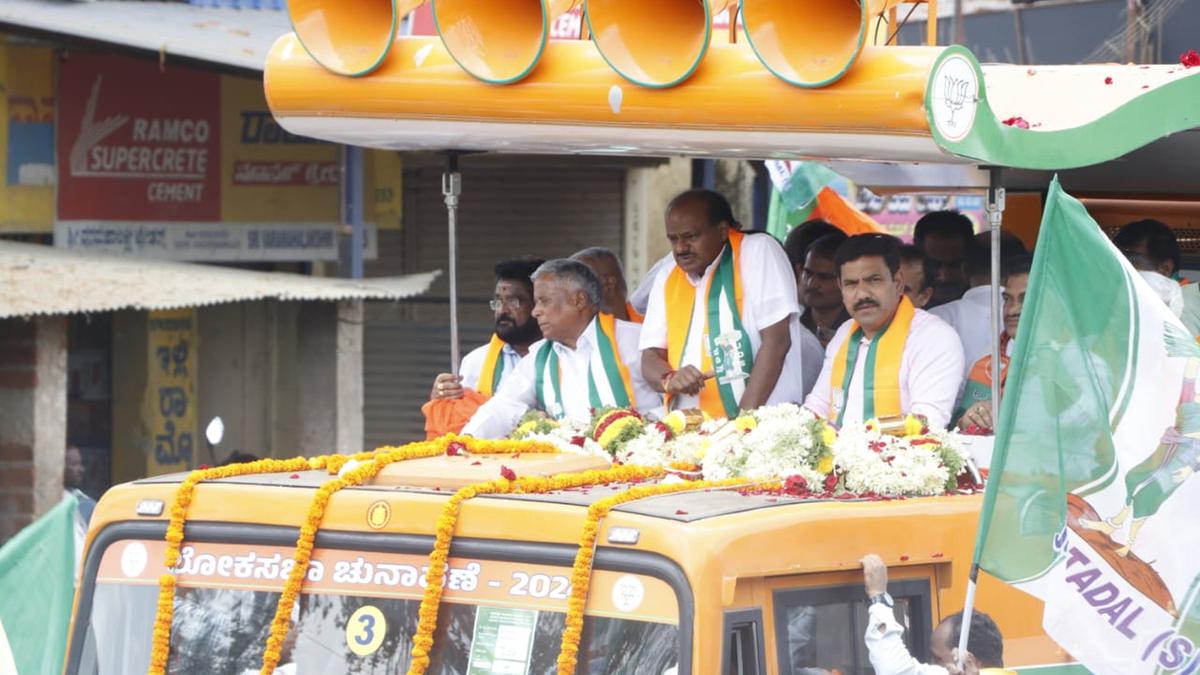
Sexism on the campaign trail
The Hindu
Leaders in Karnataka are in a dispute over the effect of schemes targeting women
Since last weekend, Karnataka has seen arrows flying between the two top political leaders on the question of what the government’s flagship guarantee schemes have meant for women.
It all began with the Janata Dal (Secular) State president and former Chief Minister H.D. Kumaraswamy’s interpretation of how two of the five guarantee schemes targeted at women — free travel in non-luxury government buses and monthly financial support of ₹2,000 for women heads of families — have impacted them. “Today, because the government has announced the five guarantee schemes during the last elections, our mothers in villages have gone astray. They have to think about what happens to their lives. You should think about what happens to your family...” he said.
This drew widespread condemnation from the Congress leaders, with the Deputy Chief Minister and the president of the Karnataka Pradesh Congress Committee D.K. Shivakumar leading from the front. Since then, the repartee between them has gone beyond just a debate on the schemes and got enmeshed in their ongoing bitter battle for Vokkaliga (the politically powerful caste to which both belong) leadership, assuming the character of alpha males sparring for territorial control.
Mr. Kumaraswamy’s statement, off the cuff as it may sound on the face of it, actually draws from two notions that have been mainstreamed ever since the women-centric schemes were implemented, that the money given to women comes from “pickpocketing” men — a reference to money that men might spend on liquor — and that with more mobility and cash in hand, women have “abandoned” their duties, such as cooking and caring for their families. This is among the several narratives built by the Opposition to undermine these schemes, one of the earlier ones being that Chief Minister Siddaramaiah was “dividing families” with these schemes by creating fissures between husband and wife or daughter-in-law and mother-in-law. These notions have been pushed aggressively on social media platforms.
There can be debates on whether the schemes have been implemented well, whether Karnataka’s excise policy is skewed and whether these schemes can serve as tools for women’s empowerment in the long run. But the typically patriarchal and feudal reactions and narratives are in themselves testimony to the fact that the schemes have, in principle, achieved their purpose of giving some sense of autonomy to women.
Sensing the widespread condemnation and the potential damage it can cause from women voters, Mr. Kumaraswamy apologised to “mothers and sisters if his statements had hurt them.” However, refusing to let go of the patronising tone, he said that he only meant to warn them about how women’s “innocence was being misused” by the Congress administration in the name of guarantee schemes.
He also pointed out, rightly, that the Congress leaders have not exactly covered themselves in glory when it comes to misogyny. He cited nonagenarian MLA Shamanur Shivashankarappa’s recent remark that the BJP candidate, from Davanagere, Gayathri Siddeshwar was only “fit to cook.” All India Congress Committee (AICC) general secretary Randeep Singh Surjewala’s comment on BJP MP Hema Malini has attracted the wrath of the Election Commission of India, he said. Mr. Shivakumar had himself told an interviewer some months ago that women arechanchale(fickle-minded) by nature and need to be watched over.













